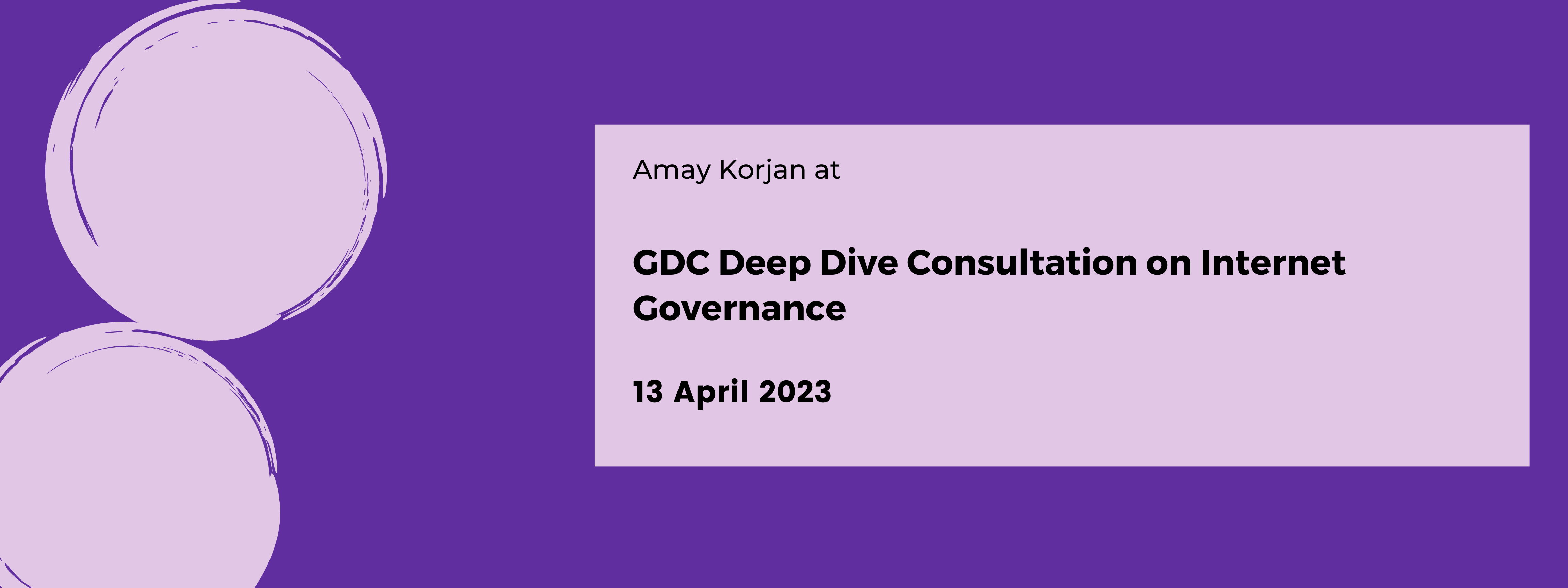
Amay Korjan represented IT for Change at the Global Digital Compact's ‘Deep Dive Consultation on Internet Governance’ on 13 April 2023.
This session focused on answering the following questions:
- How we can ensure a safe, global, secure, and inclusive internet amidst the rapid growth and emergence of new internet-based tools?
- The 2005 Tunis Agenda endorsed a multi-stakeholder approach to the governance of the Internet. How have we succeeded in realizing vision? How do the roles and functions of various multi-stakeholder forums such as ICANN, IETF and the IGF come together to support Internet governance? And how can they be strengthened?
- How can governments, technical standard bodies, civil society, industry and all stakeholders work together for an open, indivisible, free, interoperable, global, secure, and inclusive Internet?
Find below IT for Change’s complete input at the session:
As the Secretary General's stated goal of avoiding internet fragmentation clearly indicates, there are growing geopolitical tensions today around how key aspects of the internet’s infrastructure are maintained and governed. Such fragmentation is indeed a genuine threat, but we must take a full measure of the problems involved: it is not simply about unilateral action by individual states or regimes, but a larger democratic deficit that is allowing the internet to serve as a site where extraneous power struggles are carried out.
Rectifying this would entail large-scale and meaningful institutional reform: the governance of critical internet resources must be internationalized in order to create a truly global and democratic internet. One that allows nations across the Global South to have an active capacity for shaping the internet, as well as participate more fully in its growing role in economic value chains.
As considerable years of experience shows us, mere voluntary guidance from the multilateral system – such as through International Telecommunication Union’s (ITU) Telecommunication Standardization Advisory Group – is not effective. It does not challenge Big Tech’s market power or rein in the cartelization of digital services. Instead, multilateralism must be more radical and move towards discussions on standards-setting. This is essential to prevent the risks of internet balkanisation and of commercial fragmentation arising from Big Tech-led standards processes, such as the Metaverse Standards Forum.
To this end, we at IT for Change propose the following key measures at the global level to ensure that previous failures to secure a democratized internet regime are not repeated:
Firstly, the Internet Corporation for Assigned Names and Numbers (ICANN) must be accorded jurisdictional immunity from potential political interference by the US government. The clause in the IANA transition agreement that requires ICANN to be incorporated in the US must be rescinded and it must be recognized as an international organization akin to the Red Cross.
Secondly, rather than be limited to providing voluntary guidance, the ITU should be mandated to create binding international standards for network-data technologies, such as around interoperability, security, personal data protection, and quality benchmarking.
